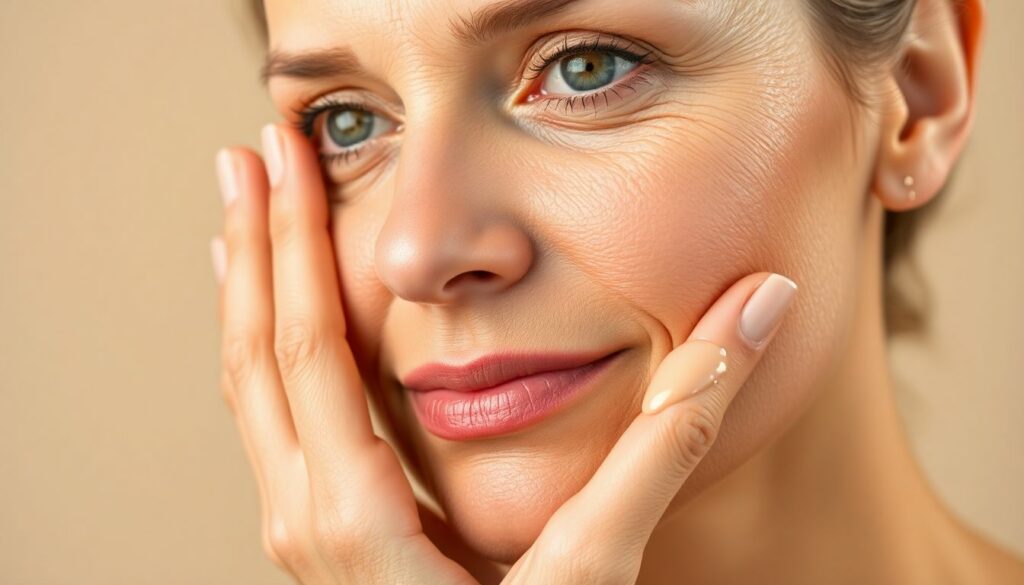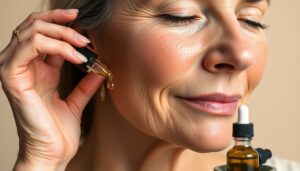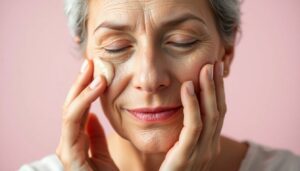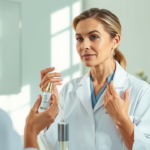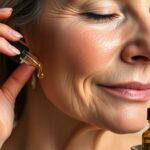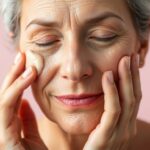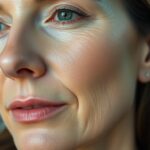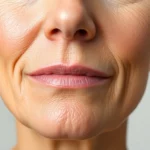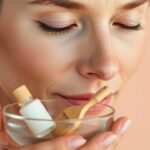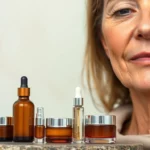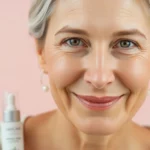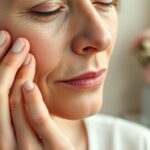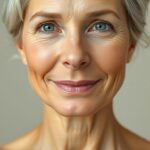Ever looked in the mirror and noticed a few more lines or a little less bounce than before? It happens to everyone. Aging is a fact of life, and skin aging is a consequence of factors like collagen loss and sun exposure. But don’t worry! With the right care, you can improve the appearance and texture of your skin. This guide will explain how to maintain healthy, youthful skin using aging skin products.
The Science of Aging Skin: How It Works
As we age, our skin changes. Understanding why helps us choose the best products for aging skin. Let’s explore these changes.
Collagen and Elastin Decline
Collagen and elastin are the skin’s scaffolding. Collagen supports firmness, and elastin provides elasticity. As we age, our bodies produce less of both, leading to thinner, wrinkled skin. While this is natural, proper skincare can help.
The Influence of Environmental Factors
Sun exposure, pollution, and smoking damage the skin by creating free radicals. Sun exposure alone is responsible for around 80% of premature aging. Protecting your skin from these factors is crucial.
Intrinsic vs. Extrinsic Aging
Intrinsic aging is natural and unavoidable, while extrinsic aging is caused by external factors like sun exposure and smoking. While we can’t stop time, we can slow extrinsic aging with proper skincare and lifestyle choices.
The Best Anti-Aging Ingredients and How They Work
Many ingredients claim to fight aging, but some are truly effective. Here are the key ones to look for in aging skin products.
Retinoids: The Gold Standard
Retinoids, like retinol and tretinoin, boost collagen production and speed up cell turnover, reducing wrinkles and smoothing skin tone. Start slowly to avoid dryness and irritation.
Hyaluronic Acid: Hydration Guru
Hyaluronic acid attracts and retains moisture, plumping the skin and reducing the appearance of wrinkles. It’s excellent for keeping skin hydrated and youthful.
Antioxidants: Free Radical Fighters
Antioxidants like Vitamin C, Vitamin E, and ferulic acid protect the skin from pollution and sun damage. They brighten skin and combat visible signs of aging.
How to Build Your Anti-Aging Skincare Routine
A consistent skincare routine is essential for combating aging. Here’s how to use aging skin products effectively.
Morning Routine: Protect and Hydrate
Start your day with a gentle cleanse, followed by an antioxidant serum like Vitamin C. Apply a hydrating moisturizer and finish with broad-spectrum SPF 30 or higher to protect your skin.
Nighttime Routine: Restore and Repair
At night, cleanse your skin to remove dirt and makeup. Use a retinoid, starting gradually, and finish with a heavy-duty moisturizer containing peptides to encourage skin renewal.
Weekly Treatments: Exfoliation & Masks
Exfoliate 1-2 times a week to remove dead skin cells. Use chemical exfoliants like AHAs/BHAs or gentle physical scrubs. Follow with a hydrating or anti-aging mask containing hyaluronic acid or antioxidants.
How to Pick Products Suited to Your Skin Type
Not all skin is the same. Choose aging skin products tailored to your skin type for the best results.
Aging Skin with Dryness
For dry skin, use hydrating cleansers and rich moisturizers with ceramides and shea butter. Avoid harsh ingredients that can dry out your skin further.
Aging Skin with Oiliness
For oily skin, opt for lightweight moisturizers and oil-free sunscreens. Ingredients like salicylic acid and niacinamide help control oil production and minimize pores.
Aging Skin with Sensitivity
Sensitive skin requires gentle, fragrance-free products. Ingredients like aloe vera and chamomile can soothe irritation. Always patch-test new products before use.
Lifestyle Factors for Healthy Aging
Skincare is essential, but lifestyle habits also play a significant role in maintaining youthful skin.
Diet and Hydration
Eat a diet rich in antioxidants, healthy fats, and protein. Stay hydrated by drinking plenty of water to promote plump, healthy skin from within.
Sleep and Stress Management
Sleep deprivation and stress can accelerate skin aging. Aim for 7-8 hours of sleep each night and manage stress through exercise or meditation.
Professional Treatments for Aging Skin
Sometimes, professional treatments can provide additional benefits. Chemical peels, microdermabrasion, and laser resurfacing can improve skin texture and tone. Consult a dermatologist for personalized recommendations.
Conclusion
Caring for aging skin requires understanding the science, using the right ingredients, maintaining a consistent routine, and adopting a healthy lifestyle. Start implementing these tips today and consult a dermatologist for personalized advice. Embrace healthy habits and take pride in your skin.
